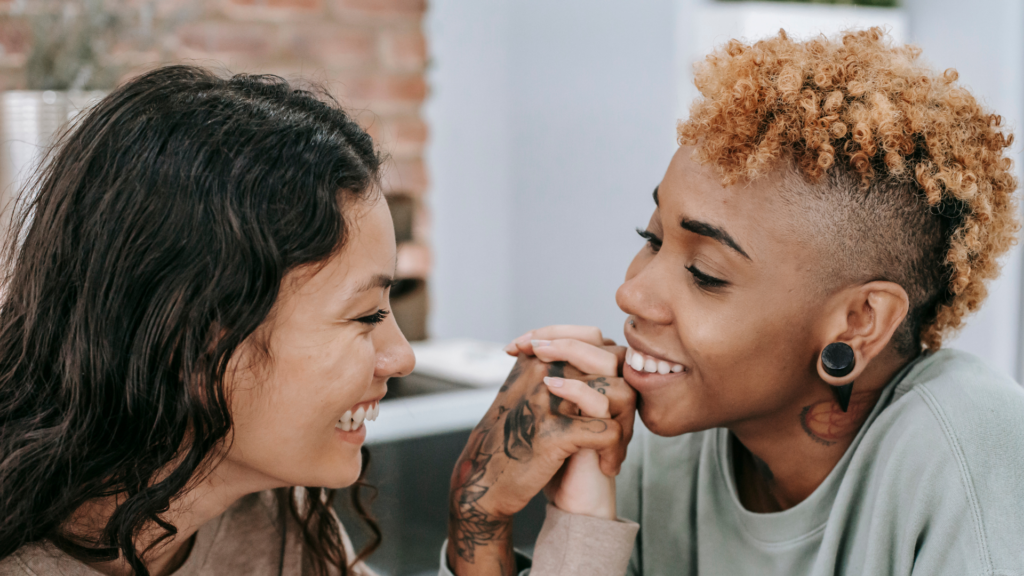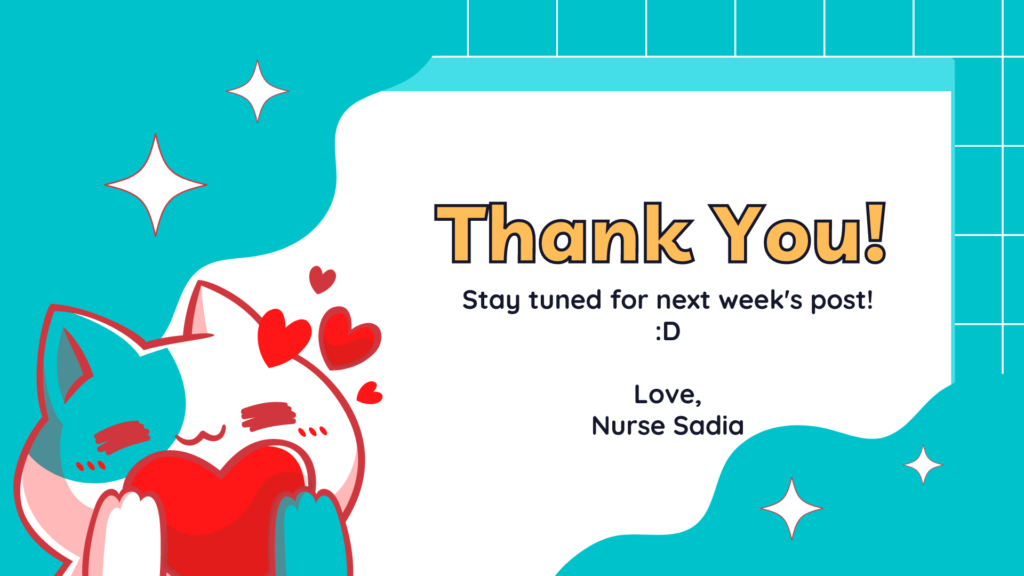Asian American Sex Ed, Perfect for AAPI Heritage Month 2022

What a month. Mays have always been really hectic for me, and this May was no exception. I decided to write about Asian American sex ed since there is very little about this topic. Asian American sex ed is rarely discussed or formally studied. Plus, it’s an issue close to my heart, it’s still AAPI Heritage Month, and it’s pretty timely given how things are looking politically.
Welcome to my blog! I’m Sadia, a women’s health nurse practitioner, women’s health content writer, and social commentator. I do many things, but mostly, I write and speak my mind. All views my own unless stated otherwise. Grab something to drink and scroll away with me. It’ll be good for both of us, promise.
In all my hectic May adventures, I realized that I haven’t written about Asian American sex ed. Years actually. I missed writing and speaking on this (and several other topics). There was a time when I would publicly speak on reproductive and sexual health education to my peers and community, and I loved it. So many people would tell me they hadn’t seen any Asian American person, let alone a person of color, discuss sexual health or sexuality or reproductive health.
That visibility was so essential and heartwarming to so many people, and I loved it. Planning workshops, doing curriculum development, getting to know the real needs of Asian American peers, re-defining Asian American sex ed on my terms and on the terms of community members. Talking about abortion in Asian American spaces, discussing contraception, making education accessible, getting into discussions of interpersonal violence in our families. It was raw, beautiful, and empowering. It made me who I am and very aware of Asian American sex ed needs and next steps for the future.

But, I rarely got paid for this work often. In fact, a lot of this work was unpaid and done on the side.
And there were no major sex ed companies that would hire me for this work. Honestly, there are a lot of places that offer comprehensive evidence-based age-appropriate sexual health education. But, I wasn’t their “style.” And if I were to work with other companies, I was told to not discuss Asian American sex ed with an anti-racist or “social justice-y” tone, so that left me back to the drawing board.
I mean, sure, I could have done it for a paycheck, but my non-sexual health education work paid more, and getting paid to not be honest in my work is not worth it unless it’s truly going to influence my finances in the long-term.
Often times, I wondered how was I going to do Asian American sex ed and get paid for it. This is partly why I went to nursing school, became a WHNP, and started my own business (hello Nurse Sadia).
But, what about Asian American sex ed now? What’s the status of the needs of Asian American youth presently? How are Asian American parents talking to their children about sexual health? There’s so much to unpack when discussing sex, and I feel like many mainstream sex ed programs miss that.
So, today, I’m going to talk to you about Asian American sex ed, what it means to me, and how sex ed can attempt to be more inclusive for everyone.

So, What’s Going on in Asian America?
First, let’s define Asian Americans. Asian Americans are the fastest growing ethnic or racial group in America. There are over 22 million Asian Americans presently and more on the way. Asian Americans are people who have Asian descent from Asian countries like China and India. Now, China and India alone have hundreds of cultures, languages, and ethnicities within these two countries, but America is not ready to acknowledge the complex histories.
So, Asian America really represents hundreds of cultures, languages, and religions, and we are all just part of the Asian American category. Yay?! While I love being Asian American, there’s a lot of under-represented diversity within the Asian American community. Whether that’s cultural diversity, economic diversity, religious diversity, or something else, a lot of times, mainstream media and spaces only like to focus on one type of Asian.
When I talked to white sex educators, often times, I was told that Asian Americans don’t have sex as much as other people. I was also told that there is no violence in Asian households. I legit spit out my water when I heard that considering every Asian American I’ve talked to has seen some shit in their upbringing. When discussing the need for culturally competent Asian American sex ed, I often got remarks of how that’s not possible or not needed. Even other health care providers would make assumptions about my sexuality or sexual health history, and if I experienced that, I know other Asian Americans did, too.
So, I decided to do Asian American sex ed on my own.
Like what you see? Sign up for my newsletter! Nurse Sadia and her affiliates do not share your email address or personal information with anyone. You may unsubscribe at any time.
My Experiences
Studies show that Asian Americans are most likely to receive sexual health education from school and least likely to receive it from their parents. Unfortunately, many schools do not provide culturally-competent or evidence-based sex education, so what does that mean for Asian American youth and Asian American sex ed needs? What about people who do not have access to evidence-based information?
I went to public school in America my whole K-12 life, and I never had formal sex education. I learned about sex, anatomy, and relationships from my mother and family. On the other hand, I saw how discussions of domestic violence and consent were stigmatized. People were often not educated on contraception. Also, I saw how very rarely people got tested for sexually transmitted infections (STIs), even if they were having casual sex. I learned to put on a condom by watching it on YouTube and then asking my mom about it.
When I talked with my friends in high school and college about sex, most of them told me they learned about sex from media and their peers. There were so many misconceptions about how to get pregnant, how to get an STI, and so much more. I was kind of shocked since I thought everyone just had a mom to explain to them about sex. Like many things, I learned the hard way that I was wrong!
I decided to get into Asian American sex ed in particular since I loved educating people, and honestly, there were so few people of color sex educators in general. Plus, Asian American sex ed felt so personal, political, and powerful. There are also so many layers to unpack when thinking about Asian American sex ed, like language accessibility, health care access, religious considerations, social upbringings, Asian American stereotypes, and stigma about discussing sex overall.
For many Asian Americans, talking openly about sex is sttil a white American concept. Even though Asian Americans are clearly having sex since the Asian American population is still increasing.

Bridging the Gap in Asian American Sex Ed
In order to make sex ed more relatable and informative for Asian Americans, it has to be real. Second, it has to be inclusive. It has to represent people who look like us. Finally, it has to be free of judgment and open for questions.
Here are five things you can do to make Asian American Sex Ed influential and educational.
- Define your Asian American audience. Are you just going into a high school and have no idea who your audience is? Are you going into a Vietnamese Student Association meeting to talk about sex and relationships? Know your audience and ask what they’d like to learn.
- Make it relatable. Find pictures that look like us. It’s so isolating and rude to see only white people in sex ed pictures. 70% of the planet is not white, so finding some stock images that look less white is really important.
- Understand why some people don’t like to talk about things. Talking about sex is stigmatized; talking about sex in Asian American families is almost non-existent for many reasons. There are complex histories of shame, honor, war, racism, sexism, colorism, genocide, trauma, violence, abuse, and so many things that mainstream sex ed does not include. Sex is extremely personal and political.
- Have an anonymous way to collect questions. Flashcards, texting in questions, dropping in questions on a Google doc. Something, anything. Especially if you’re in a large crowd, very few people want everyone to know they might have an STI or experienced assault.
- Resources they can leave with. Whether it’s following someone online or a strong-take away, what do you want your audience to learn from your time with them? Make it memorable and unique, so you can influence behaviors positively in the long run. So often, sex ed is only a one-time thing without any long-term education. Education is a life-long process.
P.S. Are you still reading? If you are able to afford to do so, consider compensating me for my time and labor with a one-time amount via PayPal (https://paypal.me/nursesadia) or Ko-fi (https://ko-fi.com/nursesadia). Thank you!
So, what are your current methods for sex ed? Are you involved in Asian American sex ed? What are some things you’d like to see happen in Asian American or sex ed spaces regarding more genuine inclusion for Asian Americans in sex ed?
Leave your comments below, feel free to check me out on social media, and see you next week!

References
Lee, C., Tran, D.Y., Thoi, D. et al. Sex Education Among Asian American College Females: Who is Teaching them and What is Being Taught. J Immigrant Minority Health 15, 350–356 (2013). https://doi.org/10.1007/s10903-012-9668-5
Trinh, S. L., & Kim, J. L. (2021). The correlates of sexual experience and reasons for abstinence among Asian Americans. Cultural Diversity and Ethnic Minority Psychology, 27(1), 82–94. https://doi.org/10.1037/cdp0000350
https://www.kasu.org/2016-03-09/asian-american-teens-say-they-lie-to-doctors-about-sex
DISCLAIMER: Nurse Sadia is a licensed and board-certified women’s health nurse practitioner and registered nurse. All information on this page and on www.digitalhealthcommunicator.com is for educational and informative purposes only. It is not meant to be used for self-diagnosing or self-treatment of any health-related conditions. While the information presented has used evidence-based research and guidelines for accuracy, Nurse Sadia cannot guarantee any inaccuracies as healthcare is rapidly evolving.
This information should not be used to substitute professional medical advice. Nurse Sadia is not responsible or liable for any damages, loss, injury, or any negative outcomes suffered as a result of personal reliance on the information contained on this website. Nurse Sadia also makes no guaranteed positive outcomes. Information is also subject to change as needed without notice. Please consult with your healthcare provider before making any healthcare decisions and ask about guidance for specific health conditions. Please do not disregard the advice of your healthcare provider or delay seeking care for health care conditions.




You must be logged in to post a comment.